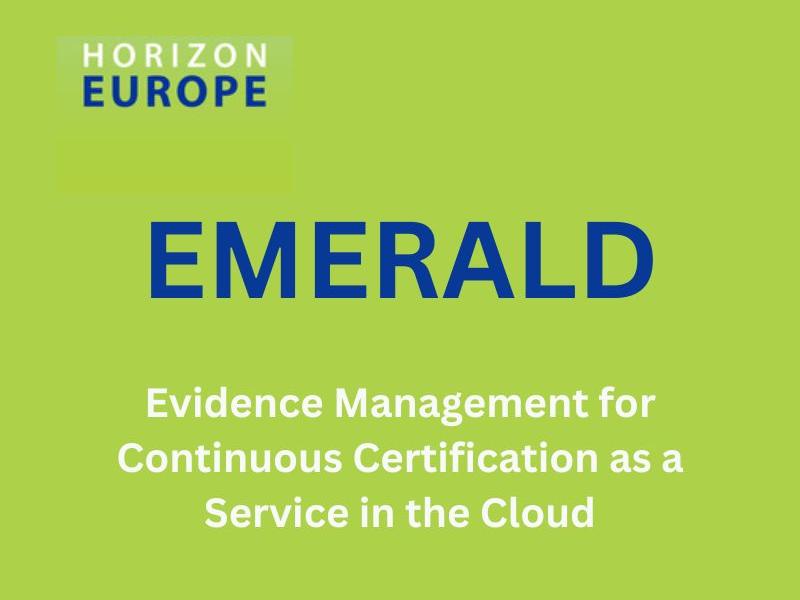
EMERALD
Evidence Management for Continuous Certification as a Service in the Cloud
Julie Arteza
01 November 2023
31 October 2026
EC funded project
Cloud-based services have grown from basic computing services to complex ecosystems, comprising (virtual) infrastructure, business processes and application code. These advanced services also increasingly leverage the usage of Artificial Intelligence, including Machine Learning or Natural Language Processing techniques, raising the complexity even higher. Due to the cascade of dependencies among the different products and services, the need arose to bring more agility to the certification process of cloud-based services, e.g. using continuous monitoring and assessment, as evidenced by references to it in the certifications of the EU Cybersecurity Act (EU CSA). To transform the continuous assessment and certification concept into the complete realization of a Certification-as-a-Service (CaaS), several challenges need to be solved: 1) current proposed proofs of concepts for continuous monitoring lack interoperability at technology level, 2) the adoption of cloud and edge computing and the incorporation of regulations on specific topics or domains, such as AI, put significant strain on companies to comply with a multitude of different security schemes, 3) existing market fragmentation for continuous certification (scope, methodologies), hinder transparency and accountability in the provision of European cloud services, 4),smart tools and models need to be adopted to ease the agile application and implementation of the CaaS concept reducing complexity in the whole cloud certification value chain easing the adoption of CaaS by the different stakeholders. To overcome these challenges, the design and implementation of the EMERALD CaaS solution leverages the H2020 project MEDINA’s outcomes and advances them to TRL 7 in the EMERALD core. Two PoCs will be provided; one for composite certification and one for mapping requirements to upcoming AI certification schemes. EMERALD will pave the road towards CaaS for continuous certification of harmonized cybersecurity schemes.
Resources for EU Research
Resources for SMEs
News & Events
Reports
Cyberwatching.eu has received funding from the European Union’s Horizon 2020 research and innovation programme under grant agreement No 740129. The content of this website does not represent the opinion of the European Commission, and the European Commission is not responsible for any use that might be made of such content. Privacy Policy | Disclaimer / Terms and Conditions of Use

